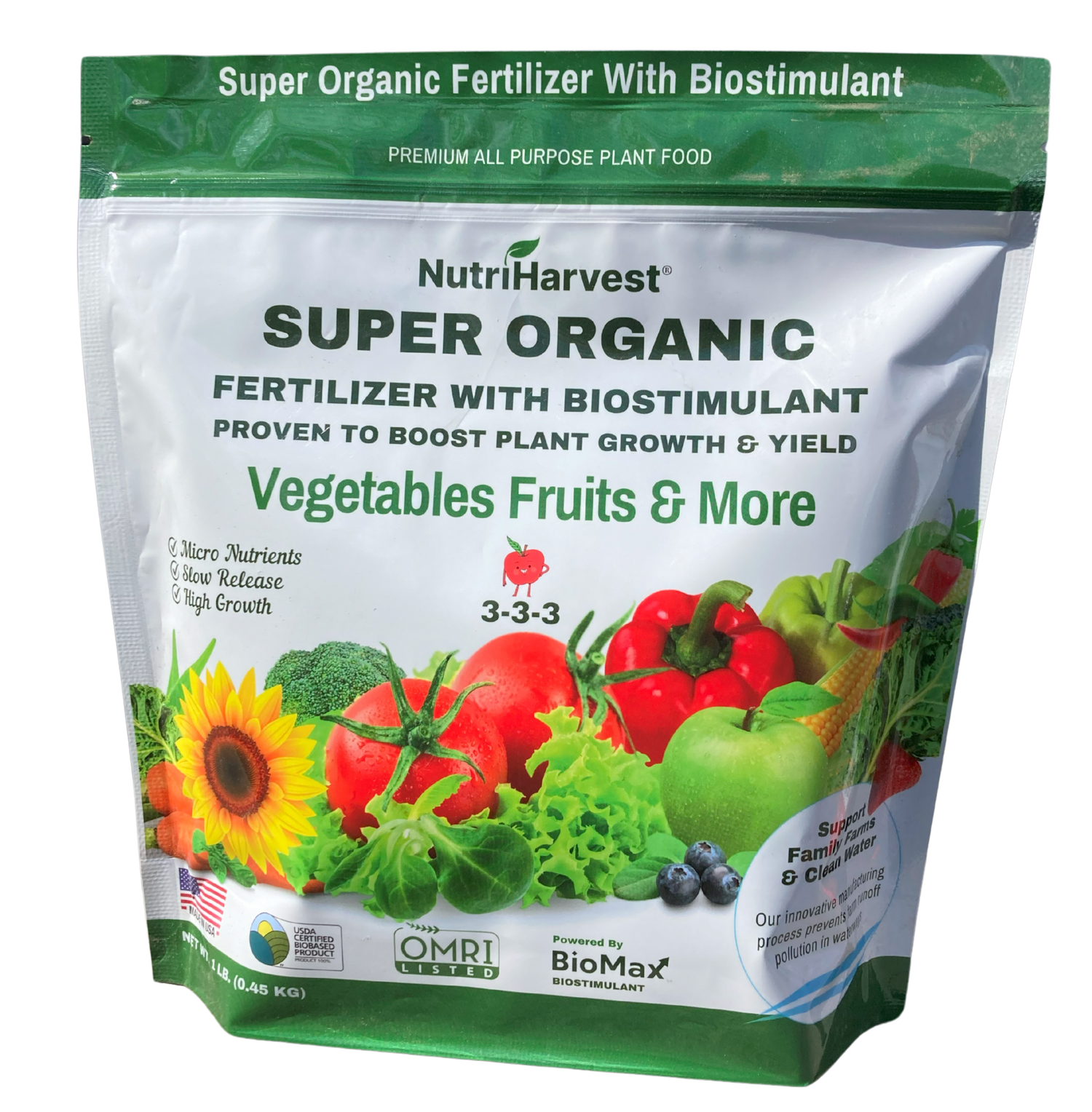Updated June 11, 2024
Growing corn with organic fertilizers can be tricky. Cultivating corn with organic fertilizers that is both robust and healthy requires more than just basic gardening skills; it demands an understanding of the best organic practices. The new Dual Action Organic Fertilizers have been rigorously tested and proven to boost corn crop yields by independent growers as shown below. Corn is one of the most versatile and widely consumed crops across the globe. From its traditional uses as food in various cuisines to fuel production, corn has proven to be a staple in both dietary and industrial realms. Discover the power of organic fertilizers: a breakthrough in gardening!
Understanding Corn: Its Needs and Growth Stages
Corn thrives in environments that provide full sunlight, ample water, and well-drained, fertile soil. It has a relatively high demand for nutrients, especially during the peak of its growing season. The growth of corn can be broken down into several stages, from germination and leaf development to tasseling, pollination, and finally, the maturity of corn ears. Each of these stages has specific nutritional needs that, if met adequately, can lead to a bountiful harvest of large, succulent corn ears.
The Role of Organic Fertilizers in Corn Cultivation
What Makes Organic Fertilizers So Essential for Corn?
Organic fertilizers differ from their synthetic counterparts by being derived from natural sources such as compost, manure, bone meal, and seaweed. These fertilizers release nutrients slowly into the soil, enhancing soil structure, increasing water retention, and encouraging healthy root development. The Michigan State University Extension leading expert says organic fertilizers offer better soil, steady nutrient supply, and improved water retention, among other benefits [1]. For corn, which is a heavy feeder, the sustained release of nutrients is beneficial for continuous growth throughout the season.
Choosing the Right Organic Fertilizer for Corn
When selecting an organic fertilizer for corn, it is crucial to consider the nutrient balance, particularly the nitrogen (N), phosphorus (P), and potassium (K) content, commonly referred to as the NPK ratio. Corn requires a higher amount of nitrogen to support its rapid growth and development, especially during the early stages of leaf development. A well-balanced organic fertilizer might include:
- Fish emulsion or blood meal for nitrogen: These are excellent sources of nitrogen and help in vigorous early growth.
- Bone meal or rock phosphate for phosphorus: Essential for energy transfer and photosynthesis, phosphorus supports the development of roots and the growth of seeds.
- Greens and or wood ash for potassium: Potassium is crucial for overall plant health and disease resistance.
- Dual Action Organic Fertilizers: There are a new generation of balanced, non-burning, and nutrient-rich organic fertilizers that go a step further in not only producing great produce but provide clean water benefits for the alchemy of agriculture with water. When selecting organic fertilizers for your carrots and other plants, opt for products that provide a balanced blend of macro and micro nutrients to meet the specific needs of vegetables like carrots, and look for labels indicating the NPK ratio, as well as the presence of additional micronutrients such as NutriHarvest® Organic Fertilizers. These organic fertilizers have been rigorously tested and proven to boost corn crop yields by independent growers - the field trial results are described below.
Application Tips for Best Results
Applying organic fertilizer correctly is as important as choosing the right type. For corn, fertilize at planting and again when the plants are about knee-high, a crucial time just before rapid growth and ear development. Incorporate the fertilizer into the soil around the plants, being careful not to disturb the roots, and water thoroughly to help the nutrients seep into the soil.

Advantages of Using Organic Fertilizers in Corn Production
The benefits of using organic fertilizers extend beyond just nutrient supply:
- Improved soil structure: Organic fertilizers contribute organic matter to the soil, enhancing its structure and ability to hold water and nutrients.
- Sustainable farming: By using organic fertilizers, you're participating in sustainable agricultural practices that minimize soil degradation and pollution, contributing to a healthier ecosystem.
- Enhanced plant health and resistance: Plants grown organically are often more resistant to pests and diseases due to stronger root systems and improved overall health.
Corn Fertilizer Schedule
Understanding the timing and stages of corn growth can significantly enhance your ability to cultivate corn effectively using organic fertilizers.
Corn Growing Season: When to Plant for Perfect Harvest
The ideal time to plant corn is after the last frost of the spring to ensure the soil is warm enough, typically above 50°F (10°C), which is crucial for germination. In most temperate zones, this translates to planting in mid to late spring. The timing is crucial because corn requires a sufficiently long period of warm, sunny weather to reach maturity.
Corn Growth Time and Stages: From Seed to Harvest
The lifecycle of corn is divided into several distinct stages, each critical to the development of the crop:
- Germination and Emergence: After planting, the first shoots appear within 5-10 days depending on soil temperature.
- Vegetative Stages: This phase is marked by the development of leaves and stems, requiring high amounts of nitrogen.
- Reproductive Stages: The tasseling, pollination, and ear development occur. This stage demands continued nutrition, especially phosphorus and potassium, to support the development of kernels.
- Maturation: The corn plants begin drying out as they prepare for harvest, which usually occurs 20-30 days after pollination, depending on the variety and environmental conditions.
The 68-day journey of a corn plant spans from the seedling stage, through determining the number of kernel rows, to silking, and finally culminating in a fully developed corn on the cob. [2].

References
[1] What organic fertilizers mean to plants and soil. George Silva, Michigan State University Extension.
[2] Corn Growth and Management Quick Guide by Duane Berglund, professor emeritus and former Extension agronomist, North Dakota State University (NDSU); Gregory Endres, Extension cropping systems specialist, NDSU; and D.A. McWilliams, formerly of the University of Minnesota and NDSU, 1999.
[3] Closing the Nutrient Loop Through an Innovative Organic Fertilizer Technology Field Tested for Corn. The University of Vermont Extension.
[4] National Corn on the Cob Day. Illinois Academy of Nutrition and Dietetics (IAND)






